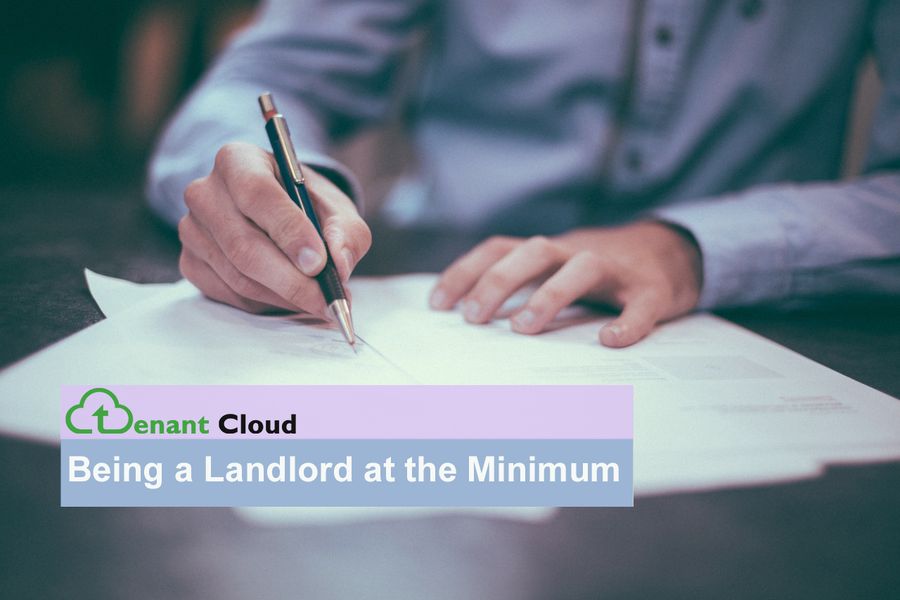Renting out your investment property to a complete stranger comes with some obvious risks. In the event you find the most amazing tenant then don’t worry bout a thing. However, if you are like the rest of us and do things like rent to your best friend, brother or the tenant who has cash now then there are some things to do at a minimum. Below is a quick run through of minimum needed information before anyone becomes a tenant. Having this information and a lease in place is when such relationship go sour and you want your rental back. This information is the minimum to help ensure you can get your rental asset back up and bringing in income.

Here are few things you need:
The Rental Application
The first thing to consider is the rental application. Before renting a home, apartment, condo, or parking spot, landlords should screen prospective tenants for trustworthiness and reliability. A standard way to gather information needed is to perform a screening. This allows landlords to run a background check and credit check on each applicant. That same information can be used later in the event of an eviction, so keeping your application in a safe place with easy access is important. Background screening permission should be given for all adults planning to occupy the rental, so ensure you have the tenant’s permission.
By the way, a landlord can charge an application fee to cover the cost of checking someone’s criminal and credit history, or simply make an option for potential tenants to pay for it themselves. This helps in making the costs of gathering such information low.
Here are key things to have on an application:
- Full Legal Name
- Birth Date
- Driver’s License Number, State I.D. or Passport #
- Social Security Number
Optional:
- 5 years of rental history, with contact phone number or previous landlord
- Pay stubs of current job
- Job History
- Vehicle registration
- Children living with the applicant including ages (co-applicant any over 18)
- Emergency contacts
The Lease
The lease itself defines the landlord/tenant relationship. The lease is the document that stipulates how a breakup might occur. An agreement that only covers the basics will include the following:
- Identifying information of all parties involved (should match application info.)
- Start date along with payment periods (when is rent due)
- Rental amount
- Deposit amount and limits of how deposit and be used
- Methods of payment of rent
- Rules governing late fees if rent is paid late
- Appliances and other assets in the rental
- Signatures and signing dates
Optional:
- Make/model/license plate of any vehicles
- End date and or even the move out time
- Who cares for the landscaping
- Month-to-month transition at the end of a lease
- Stipulation for renewing a lease like rent increase
- Rules for taking on a roommate (need a approval?)
- New key fee
If you do not have a separate deposit agreement, details of the deposit should be given in the lease. Be sure to differentiate between deposits and fees. Deposits are refundable without specific reasons for not being refundable. Fees are not refundable. This includes a holding deposit, which is for holding a rental vacant for longer than normal. If the Holding deposit is not written to go towards early rent then it is refundable.
The Key Receipt
When a tenant moves in note which key they are assigned. In many cases there are more than one type of key to a unit. Note the type of key and key code in case duplicates need to be made without the original. Keep in mind that many types of units will require re-keying between tenants. This fee can be specified in the move in/out fees or may be refundable if all keys are returned at time of move out.
Other Legal Addendums and Disclosures
There are many state and federal required addendums. Be sure to inquire about which are required to be use in that rentals jurisdiction. Some of the more common are lead based paint, radon, drug free/crime free, smoke detector, and HOA addendums. You should check your state’s required documents, as it varies from region to region.
After you have collected the minimum amount of information and have the minimum in a lease agreement in the event of a breakup you will want to make sure to store it properly. Modern technology allows for cloud based storage that is safe and accessible. You will decide what safe place best suits you but if you value the accessibility offered by cloud storage, let me suggest TenantCloud. TenantCloud is a cloud based system that caters specifically to the needs of landlords and tenants. You will find rental agreements, lease management documents and much more. Everything is automated and works to save your time and money while storing such applications and agreements in the event you need then in the future.
So, whether it is your brother-in-law or a complete stranger if you have the minimum information you can at least sleep knowing that if all else goes bad you know how your relationship will end :)
5 Important Things To Know For Becoming A Landlord: Online Lease Agreement, Tenant Screening
How To Find Tenants: TenantCloud Real Estate Management Software Solution
Guide To Family Rental Business Basics: 4 Important Tips For Being An Effective Landlord






